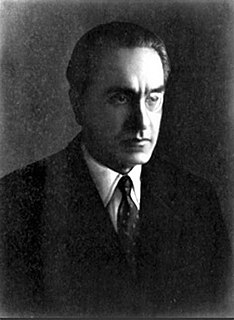A Quote by Sylvia Pankhurst
The words Socialism and Communism have the same meaning. They indicate a condition of society in which the wealth of the community: the land and the means of production, distribution and transport are held in common, production being for use and not for profit.
Related Quotes
Like most terms of political discourse, socialism has more or less, lost its meaning. Socialism used to mean something. If you go back far enough it meant basically control of production by producers, elimination of wage labor, democratization of all spheres of life; production, commerce, education, media, workers control of factories, community control of communities, and so on. That was socialism once. But it hasn't meant that for a hundred years. Socialism meant something different.
Production for sale in a market in which the object is to realize the maximum profit is the essential feature of a capitalist world-economy. In such a system production is constantly expanded as long as further production is profitable, and men constantly innovate new ways of producing things that will expand the profit margin.
Socialism is not spontaneous. It does not arise of itself. It has abiding principles according to which the major means of production and distribution ought to be socialised if exploitation of the many by the few is to be prevented; if, that is to say, egalitarianism in the economy is to be protected.
Under the old social philosophy which had governed the Middle Ages, temporal, and therefore all economic, activities were referred to an eternal standard. The production of wealth, it distribution and exchange were regulated with a view to securing the Christian life of Christian men. In two points especially was this felt: First in securing the independence of the family, which can only be done by the wide distribution of property, in others words the prevention of the growth of a proletariat; secondly, in the close connection between wealth and public function.
The ideas of the ruling class are in every epoch the ruling ideas, i.e. the class which is the ruling material force of society, is at the same time its ruling intellectual force. The class which has the means of material production at its disposal, has control at the same time over the means of mental production, so that thereby, generally speaking, the ideas of those who lack the means of mental production are subject to it. The ruling ideas are nothing more than the ideal expression of the dominant material relationships, the dominant material relationships grasped as ideas.
The difference between [socialism and fascism] is superficial and purely formal, but it is significant psychologically: it brings the authoritarian nature of a planned economy crudely into the open. The main characteristic of socialism (and of communism) is public ownership of the means of production, and, therefore, the abolition of private property. The right to property is the right of use and disposal. Under fascism, men retain the semblance or pretense of private property, but the government holds total power over its use and disposal.
To control the production of wealth is to control human life itself. To refuse man the opportunity for the production of wealth is to refuse him the opportunity for life; and, in general, the way in which the production of wealth is by law permitted is the only way in which the citizens can legally exist.
The tax upon land values is the most just and equal of all taxes. It falls only upon those who receive from society a peculiar and valuable benefit, and upon them in proportion to the benefit they receive.It is the taking by the community for the use of the community of that value which is the creation of the community. It is the application of the common property to common uses. When all rent is taken by taxation for the needs of the community, then will the equality ordained by nature be attained.
Modern capitalism is just as subversive as Marxism. The materialistic view of life on which both systems are based is identical. As long as we only talk about economic classes, profit, salaries, and production, and as long as we believe that real human progress is determined by a particular system of distribution of wealth and goods, then we are not even close to what is essential.
Our ideal society finds it essential to put a rent on land as a way of maximizing the total consumption available to the society. ...Pure land rent is in the nature of a 'surplus' which can be taxed heavily without distorting production incentives or efficiency. A land value tax can be called 'the useful tax on measured land surplus'.



































